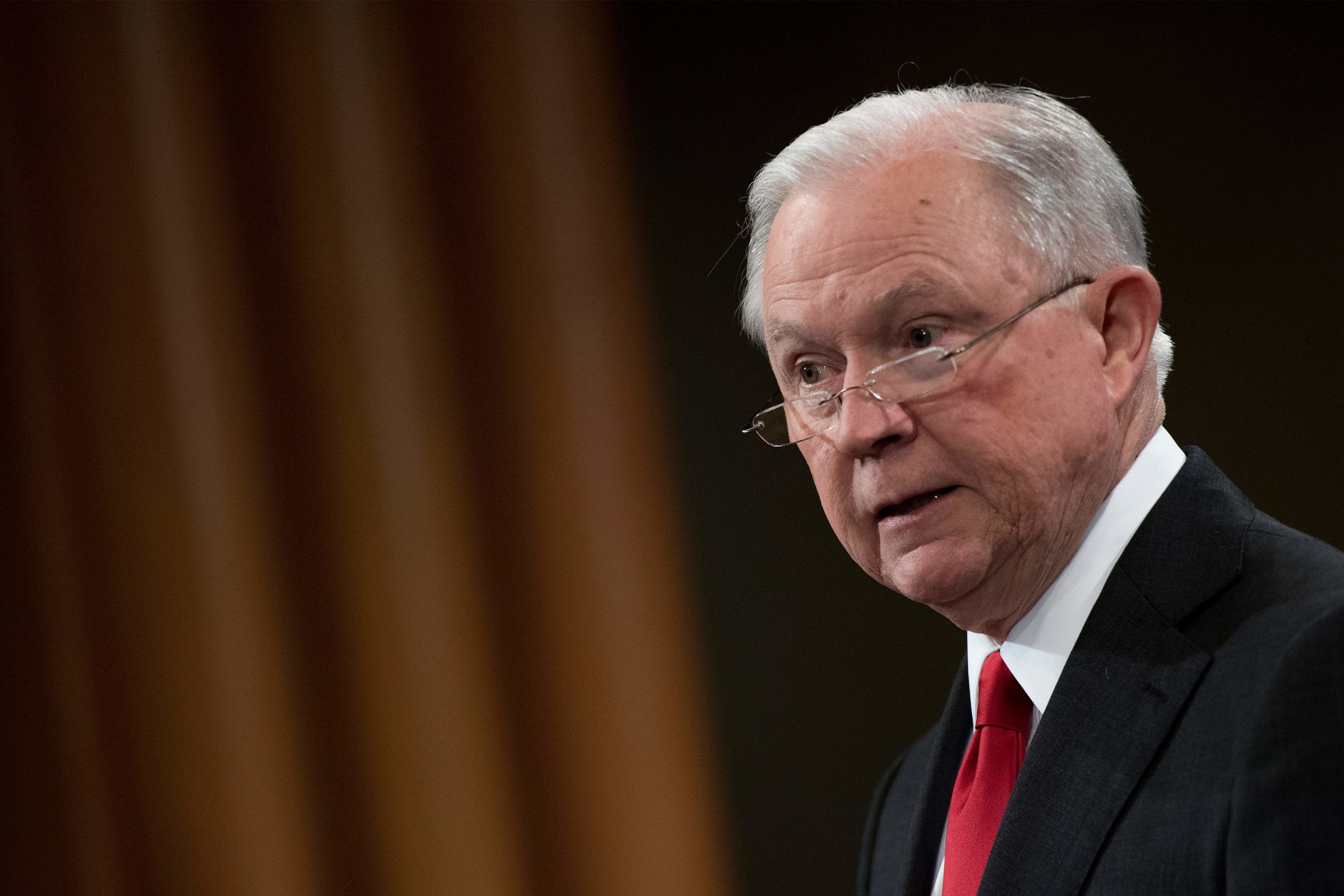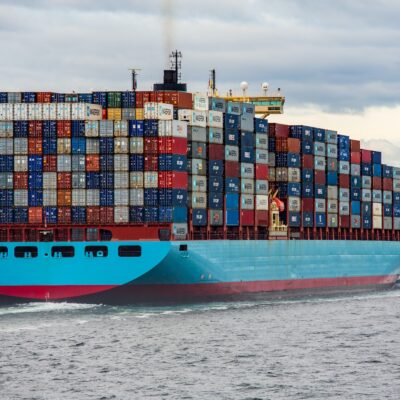

How we got globalization so wrong
RECOMMENDED READING
When I came to the Senate in 1996, two years after the Gingrich-led revolution, Republican momentum was still strong. We were a staunch Reaganite majority to the rescue, united in the fight for free markets and limited government, against anything that smacked of socialism. We took our marching orders from the Chamber of Commerce, the Wall Street Journal, Heritage, AEI, and CATO.
I remember asking a witness at one early hearing whether America should continue to buy from a country that refused to buy from us. His response was a straightforward “Yes.” At another hearing, I asked Federal Reserve Chairman Alan Greenspan about a recent USA Today article in which a European businessman explained that the American economy was stronger than Europe’s because the United States had fewer taxes, less regulation, and a greater commitment to the free market. I asked the Chairman if he agreed. He looked at me and declared, “I absolutely agree with that.” For several years thereafter, I would say in my speeches “Well, I got my marching orders and I’m moving forward.”
The animating idea was that a global, free-trade agenda would spread prosperity, deepen interdependence, advance science, further expose the flaws of socialism and communism, and move us beyond history to world peace. Certainly, a great deal of good was accomplished, of which I remain proud.
“As we were getting juiced every morning by our intellectual allies, we failed to recognize that our aggressive trading competitors were advancing steadily, constantly seeking and exploiting advantages, while the economic security of American workers eroded.”
Yet, neither self-interest nor ideology disappear. The nature of man does not change overnight, if ever. When water is dammed, it seeks weak spots to seep through. There was an assumption that the most powerful and prosperous business leaders, who I dubbed the “Masters of the Universe,” understand the economy best, that they had America’s national interest at heart, and that their best interests were everyone’s best interests. This was a flawed and dangerous assumption.
And as we were getting juiced every morning by our intellectual allies, we failed to recognize that our aggressive trading competitors were advancing steadily, constantly seeking and exploiting advantages, while the economic security of American workers eroded.
The Self-Interested Elite
The problem was that the powerful and wealthy saw no problem. They benefited from closing American factories and moving jobs abroad. They benefited from lower wages. This was their agenda from the start. Understandably so, as these policies advanced the financial interests of their stockholders.
What’s more, the globalist passion for free markets and free trade was applied selectively. Our trading competitors (they were never “partners”) were, in their hearts, resolutely mercantilist. They did not believe in comparative advantage as a theory. They just believed in advantages for themselves and their countries. And in their manipulations, these emerging economies had the protection of the global business community, which wanted their low wages and governmental support. Business leaders were quick to insist on free market purity for America, but they knew better than to challenge the great market impurities of the low-cost economies.
In 2010, former General Electric CEO Jeffrey Immelt accidentally told the truth about this unbalanced arrangement, saying, “I am not sure that in the end [the Chinese] want any of us to win, or any of us to be successful.” Such criticism would have threatened GE’s prospects in China, though, so spokesmen quickly retracted the comment. “Mr. Immelt,” they said, “discussed the attractiveness and importance of China as a market for GE.”
“Global business interests, ever loyal to their bottom line and stockholders around the world, lost any loyalty to the nation that made their prosperity possible. They had zero concern for the damage these policies were doing to middle America.”
Having grown up with the normal people of middle America, I began to feel the tension in Washington any time I expressed doubts. When someone did dare to comment on the unfair trade practices of these countries, the historical weapon to right such wrongs—tariffs—remained off-limits. It seemed the word “tariff” was forbidden even to be spoken. Objections to the ideology of the new world order could not be questioned. Among Republicans, any questioning of the forces advancing the interest of capital to the detriment of labor was put down as “union talk.” It was that simple.
Global business interests, ever loyal to their bottom line and stockholders around the world, lost any loyalty to the nation that made their prosperity possible. They had zero concern for the damage these policies were doing to middle America. They got cheaper products to sell for greater profits and expected lower prices to satisfy consumers.
The plan was brilliant but for one small problem: a growing dissatisfaction among working Americans. For the globalist, the mechanics of a democratic republic, and even its principles, were a constant impediment to the great progress of globalism they envisioned, and of course its profits. Elections, the Constitution, Congress, the States, the courts—and especially citizens, whose voices our political system was designed to hear—were getting in the way.
The calculated response to the typical American family’s frustration was to studiously ignore it. Soon they will go away, or maybe die, the leaders thought. Our focus must be on the future, not the wounded left behind. We are changing the world. The government will have to take care of them.
The Wisdom of Crowds
The force of pell-mell globalization revealed itself in many areas. I felt these forces first and most directly during the immigration debates. There was then, as we can see more clearly now in the Biden Administration, a powerful drive by globalists for open borders, which of course they took great care to hide from the populace. During the last big amnesty debate in 2013, over one billion dollars was raised and spent to pass the legislation. They almost won. How close it was is too long a story to relate here, but every lobbyist in town, the media, public radio, TV, universities, big agriculture (but not most farmers), civil rights activists, liberal mainline Christian denominations, and Marxists were lined up. Only the people were opposed.
A new world vision was also arising, in which binding trading agreements and treaties would shift power from nations to transnational entities controlled by unaccountable bureaucrats. I had seen this idea more than a decade before in the initial glow of the European Union. Many were quietly working to establish a North American Union consisting of Canada, Mexico, and the United States. This union would have a common currency, open trade, and open borders. Some during the Bush Administration were open to the idea.
“A new world vision was also arising, in which binding trading agreements and treaties would shift power from nations to transnational entities controlled by unaccountable bureaucrats.”
The Trans-Pacific Partnership (and the Trans-Atlantic Partnership that was to follow) was the next big step. As with the European Union, each nation would have one vote: one for the Sultan of Brunei, one for the President of the United States. This was the globalist ideology at work. I argued that a great nation like the United States, which operated at an entirely different level than other nations, should never subject itself to such controls. The globalists were like the Lilliputians, using their many strings to bind the giant Gulliver.
TPP was “fast-tracked” by a 60–38 vote in the Senate before the final language even existed, meaning the complete version could be passed by a simple majority without debate. Its supporters had locked in united establishment support. President Obama, Speaker Boehner, Leader McConnell, and of course the Chamber of Commerce, Silicon Valley, and all the globalists, progressives, and leftists anticipated a great victory. Republican leadership couldn’t wait to sign, seal, and deliver the package to our corporate funders.
Then an unexpected event torpedoed the well-designed plans. Donald Trump came down that Trump Tower escalator. He pounded the TPP relentlessly, and his voice was heard by the people. Finally, someone was speaking for them, and they in turn made their voices heard. The tide quickly turned. No final vote was ever held. Even Hillary Clinton flipped to opposition.
I, like other allies in the fight, was derided as a populist. Populism has always had a bad reputation among the comfortable establishment, of course. And populists deserve condemnation when they descend into demagoguery. But reality tells us that smart people will always seek advantage, exploit existing rules when they can, and try to reshape the rules in their favor. A government exists to protect the security, the prosperity, and the freedom of all its people, not just the sophisticated, and to advance the long-term health of its nation. There is nothing wrong with honestly and forcefully defending the legitimate interests of the American citizen when those interests are being eroded by the special interests of the powerful.
In the Senate, I supported some of the policies, at least in part, that I now criticize, at least in part. I remain proud of the Republican agenda overall. Our party alone had the national breadth and strength to turn America away from a socialist course. But our establishment was wrong on immigration. The people were right. Our establishment went too far on trade. The people were right. Our establishment overreached on war and foreign policy. The people were right.
There is wisdom in crowds. Good leaders serve and listen carefully to those they serve. The interest of the globalist class is not coterminous with that of the good, dutiful Americans who comprise this great country. Globalists do not provide objective advice, and their experts have no special claim on the truth. Not on trade, not on immigration, not on crime, not on voting, not on culture, not on free speech, not on religion. Theirs is a special interest and must be understood as such.
Median household income in America is about $60,000 a year. Half of American households make less, and some much less. Meanwhile, the Washington Post noted recently, there are 745 billionaires in the country. Their wealth increased by 70% during the pandemic, and this wealth now exceeds the collective wealth of the bottom 60% of Americans. A party without a cogent message for the advancement of all our people, which does not listen to all our people, has no moral basis to govern them. The message that whatever is best for the globalists will someday and somehow be best for all was never a good or truthful one, and it certainly won’t hunt now.
“There is wisdom in crowds. Good leaders serve and listen carefully to those they serve. The interest of the globalist class is not coterminous with that of the good, dutiful Americans who comprise this great country. Globalists do not provide objective advice, and their experts have no special claim on the truth.”
Fortunately, in our constitutional order, ultimate power lies with the people. They can elect wise leaders capable of negotiating these perilous waters and arriving at a destination of freedom, prosperity, and security for all. America must and will continue to be an active leader in the world, defending truth, law, free enterprise, and faith when and where we can. We must and will continue to trade worldwide—shutting down the global economy is not an option, and would serve no one. We must and will, with realism and judgment, defend American interests worldwide, and forcefully engage those who threaten our security.
The leaders of our sovereign nation-state must protect the just and long-term interests of all our citizens. Our citizens come first; such is the nature of nations. History has not ended; the era of nation-state has not ended. It alone has authority by laws and heritage to call on its people to sacrifice for an important cause. It alone can enter into strong agreements with other nations.
Between the Extremes
The struggle for conservatives, as we recover our bearings and pursue a just global order that works for the American people, is to navigate between the various extremes that would cause harm. One extreme, the one to which we fell prey in recent decades, is blind faith in the globalist perspective. Business leaders have useful insights, but their agenda is not America’s. They serve their stockholders. Our leaders must serve their stockholders, the American people.
Another extreme is the dishonest populism of demagogues. Serving the people does not mean simply telling them what they want to hear or, worse, telling them that which will foster grievance. As Edmund Burke told his own constituents, “Your representative owes you, not his industry only, but his judgement; and he betrays you instead of serving you if he sacrifices it to your opinion.”
The third extreme is socialism. Conservatives have the good fortune that socialism’s siren song holds little appeal—Americans do not wish power concentrated even for ourselves, and we do not believe even the best-intentioned government could wield it well. But just as we should ignore the socialists who warn that profits are evil and business has nothing to offer, we should ignore the extreme market fundamentalists who believe public policy itself has no role to play.
Between these extremes, we can find a common-sense conservatism that rejects the ideology of globalization without shutting out the world. America should always engage with other nations. But we must do it in ways that preserve our people’s political control, and in ways that actually benefit us.
First, we must give up the illusion that other nations see the world as we do or want what’s best for us. Realism and history teach us that our partners, competitors, and enemies wish to advance their national interest at the expense of ours. Thus, we must vigorously defend our interests with all the power that we have, retaliating against every illegal and unfair trade practice. One indispensable element of that power is access to our markets. The world’s traders lust for our markets. The ideology that tariffs are never justified must be rejected, in favor of a pragmatism that accepts their necessity.
“Between these extremes, we can find a common-sense conservatism that rejects the ideology of globalization without shutting out the world.”
Second, we must stop treating the lowest price as the final trump card. Will our security be strong if our ships are all built at lowest cost on another continent? Can we dispense with industries producing steel or aluminum or electronics? Can we tolerate Chinese domination of the Internet and our communications? Both immigration and offshoring have badly eroded the position of working Americans. Good American jobs with rising wages that provide self-respect are far better for our culture than paying people not to work.
Third, we must invest to rebuild what we have lost. We no longer make the fastest computer chips. We are drastically short of rare earth elements. Even our drug manufacturing has been outsourced. We celebrate the innovation at companies like Tesla, but most Teslas are already made in Shanghai. Nike recently declared itself “a brand of China and for China.” Whatever this is, it isn’t a capitalism that advances the American interest.
I mentioned that I once proudly took my marching orders from Fed Chairman Alan Greenspan. Only later did I learn that he believed—and I am still shocked he said this—that, “We are fortunate that, thanks to globalization, policy decisions in the U.S. have been largely replaced by global market forces. … It hardly makes any difference who will be the next president. The world is governed by market forces.”
Greenspan’s statement provides an unvarnished look at the radicalism, elitism, and danger of the globalist vision. This ideology is a product of arrogance, it contravenes the lessons of history, and it evinces a clear disdain for the concept that a government’s legitimacy depends upon the consent of the governed. Make no mistake, continuing down this path would dramatically remake the world order. We must think far more deeply about such radical change and about the power of the forces that seek to advance it.
Americans, and especially conservatives, must ask: If we are not to be governed by representatives that we choose, who or what will decide our nation’s course? Who will control the Masters of the Universe? We are blessed to live in a constitutional republic, which emerged from the evolutionary English model and has proved the only reliable protector of liberty and prosperity in human history. Abandoning all that in favor of impersonal, international economic forces, no matter how “efficient,” would be a folly akin to the disastrous French Revolution.
Now is the time to reject this agenda and the elites who promote it. The American people must be made aware of the threat and rallied to reject it. If that is populism, then populism we need.
Recommended Reading
Free Trade’s Origin Myth
American elites accepted the economic theory of “comparative advantage” mainly because it justified their geopolitical agenda.
Issues 2024: Globalization
Revitalizing the national economy must begin with restoring the incentive to invest and build in America.
New Collection: Supply-Side Economics Beyond Tax Cuts
Long-term analysis shows the ineffectiveness of the Bush and Trump tax cuts












